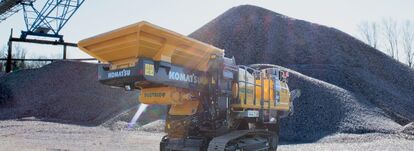The sustainable management of waste treatment plants
Throughout the years, we have always implemented the principles of circular economy even in the management of waste recovery mainly coming from construction-related activities, steel industry, ceramic industry, and similar.
We start from two fundamental considerations:
- in the context of construction sites, significant volumes of special waste, mostly aggregates, are generated;
- the disposal of waste in landfills generates significant management costs and externalities.
The recovery of waste generated in industrial and construction activities contributes not only to the circularity of material flows and their reintroduction into natural or production cycles, but also to the creation of more effective and economically efficient systems for the collection, separation, and treatment of materials.
"The sustainable management of waste is essential to address the challenges related to the increase in their production and to contribute to better environmental protection".
Cristina Luci
Operational Director Gesteco
